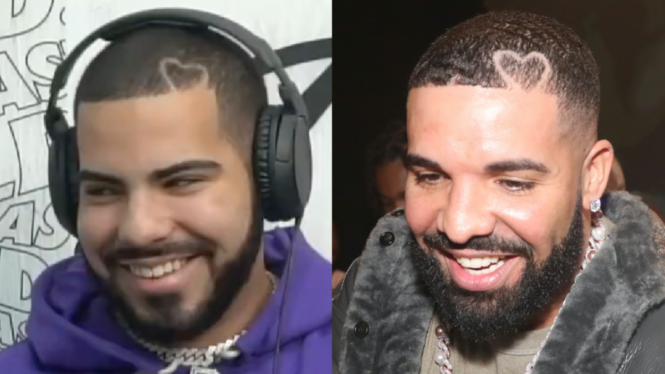For the last week, the most talked-about song in the music business has been “Heart on My Sleeve,” the track said to have been created by using artificial intelligence to imitate vocals from Drake and The Weeknd and uploaded to TikTok by the user Ghostwriter977. And while most reactions were impressed, there was a big difference between those of fans (“This isn’t bad, which is pretty cool!”) and executives (“This isn’t bad, which is really scary!”). As with much online technology, however, what’s truly remarkable, and frightening, isn’t the quality – it’s the potential quantity.
This particular track didn’t do much damage. Streaming services pulled it down after receiving a request from Universal Music Group, for which both Drake and The Weeknd record. YouTube says the track was removed because of a copyright claim, and “Heart on My Sleeve” contains at least one obvious infringement in the form of a Metro Boomin producer tag. But it’s not as clear as creators and rightsholders might like that imitating Drake’s voice qualifies as copyright infringement.
In a statement released around the time the track was taken down, Universal said that “the training of generative AI using our artists’ music” violated copyright. But it’s a bit more complicated than that. Whether that’s true in the U.S. depends on whether training AI with music qualifies as fair use – which will not be clear until courts rule on the matter. Whether it’s true in other countries depends on local statutory exceptions for text and data mining that vary in every country. Either way, though, purposefully imitating Drake’s voice would almost certainly violate his right to what an American lawyer might call his right of publicity but a fan would more likely call his artistic identity. There are precedents for this: A court held that Frito-Lay violated the rights of Tom Waits by imitating his voice for a commercial, and Bette Midler won a similar lawsuit against Ford. Both of those cases involved an implied endorsement – the suggestion of approval where none existed.
The violation of an AI imitation is far more fundamental, though. The essence of Drake’s art – the essence of his Drakeness, if you will – is his voice. (That voice isn’t great by any technical definition, any more than Tom Waits’ is, but it’s a fundamental part of his creativity, even his very identity.) Imitating that is fair enough when it comes to parody – this video of takes on Bob Dylan‘s vocal style seems like it should be fair game because it’s commenting on Dylan instead of ripping him off – but creating a counterfeit Drake might be even more of a moral violation than a commercial one. Bad imitators may be tacky, but people tend to regard very accurate ones as spooky. “Heart on My Sleeve” isn’t Drake Lite so much as an early attempt at Drakenstein – interesting to look at, but fundamentally alarming in the way it imitates humanity. (Myths and stories return to this theme all the time, and it’s hard to think of many with happy endings.) Universal executives know that – they have talked internally about the coming challenges of AI for years – which is why the company’s comment asked stakeholders “which side of history” they want to be on.
This track is just the sign of a coming storm. The history of technology is filled with debates about when new forms of media and technology will surpass old ones in terms of quality when it often matters much more about how cheap and easy they are. No one thinks movies look better on a phone screen than in a theatre, but the device is right there in your hand. Travel agents might be better at booking flights than Expedia, but – well, the fact that there aren’t that many of them anymore makes my point. Here, the issue isn’t whether AI can make a Drake track better than Drake – which is actually impossible by definition, because a Drake track without Drake isn’t really a Drake track at all – but rather how much more productive AI can be than human artists, and what happens once it starts operating at scale.
Imagine the most prolific artist you can think of – say, an insomniac YoungBoy Never Broke Again crossed with King Gizzard & the Lizard Wizard. Then imagine that this hypothetical artist never needs to eat or sleep or do anything else that interferes with work. Then imagine that he – or, really, it – never varies from a proven commercial formula. Now clone that artist thousands of times. Because that’s the real threat of AI to the music business – not the quality that could arrive someday but the quantity that’s coming sooner than we can imagine.
It has been said that 100,000 tracks get uploaded to streaming services every day. What happens once algorithms can make pop music at scale? Will that turn into a million tracks a day? Or 100 million? Could music recorded by humans become an exception instead of a rule? In the immediate future, most of this music wouldn’t be very interesting – but the sheer scale and inevitable variety could cut into the revenue collected by creators and rightsholders. The music business doesn’t need an umbrella – it needs a flood barrier.
In the long run, that barrier should be legal – some combination of copyright, personality rights and unfair competition law. That will take time to build, though. For now, streaming services need to continue to work with creators and rightsholders to make clear the difference between artists and their artificial imitators.
Fans who want to hear Drake shouldn’t have to guess which songs are really his.
For the Record is a regular column from deputy editorial director Robert Levine analyzing news and trends in the music industry. Find more here.
https://www.billboard.com/pro/fake-drake-song-generative-ai-music-debate-problems/





